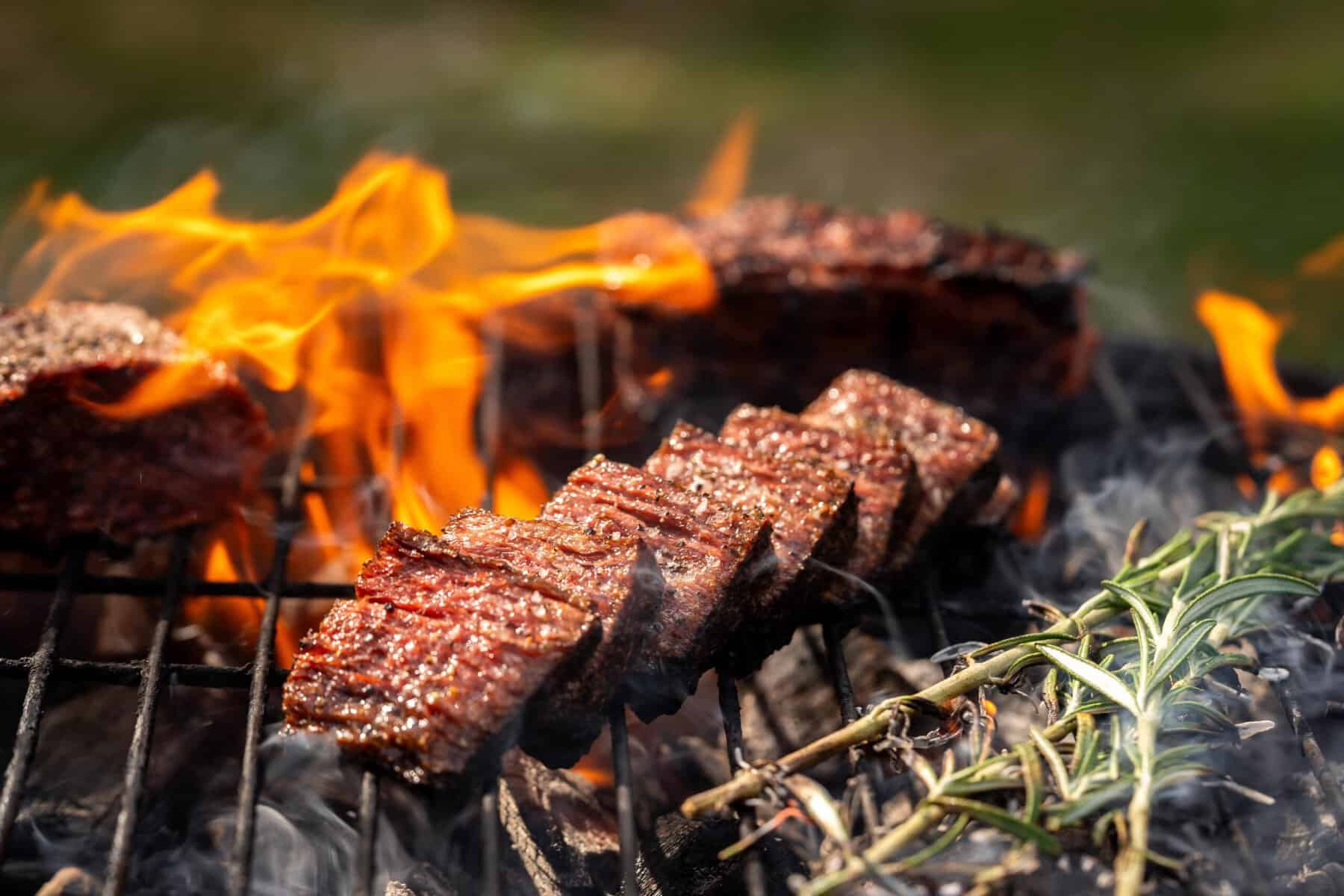A new report detailing a system for decarbonizing the UK food system suggests that reducing meat and dairy consumption is necessary to lower its 129.5 million-tonne carbon footprint and achieve sector net-zero targets by 2030 and 2050.
The report is a collaboration between the Institute of Grocery Distribution (IGD), the Waste and Resources Action Programme (WRAP), the accounting firm EY, and food industry leaders, aiming to craft a strategy for change that aligns net-zero emissions and health goals to avoid reactive policy impositions and maintain the food industry’s autonomy.
Supply vs. demand-side
Food emissions are a large share of global and UK greenhouse gas emissions, and deep cuts will be required on both the supply and demand sides to meet climate objectives.
As the report explains, the UK food system footprint is dominated by the supply side: agriculture, fertilizer production, energy, transportation, and industrial manufacturing. To decarbonize this side, the authors propose multiple measures, from broad adoption of lower-carbon farming practices to regulations to eliminate deforestation from supply chains to major infrastructure modifications to achieve zero-emission logistics and low-carbon heating and cooling.
Meanwhile, the demand side (consumers) involves diet changes and reducing food waste, actions that significantly impact the food system’s total carbon emissions. The report highlights that while significant progress can be made through supply-side actions, demand-side actions are “required” to achieve net-zero targets and align with carbon budgets.

Diet change
According to the report, scenarios developed by the Climate Change Committee (CCC) suggest that diet change is necessary for the food system to fulfill its carbon reduction role and meet SBTi FLAG targets. The SBTi FLAG targets refer to the Science-Based Targets initiative (SBTi) specifically for the Forest, Land, and Agriculture (FLAG) sectors. The CCC recommends a 20% reduction in red meat and dairy consumption by 2030, aiming for even greater reductions by 2050 to meet these targets.
Meanwhile, the report indicates that shifting diets toward lower-carbon foods, such as plant-based options, can significantly reduce carbon emissions. It highlights a conservative scenario suggesting that a 20% reduction in red meat and dairy by 2050 could achieve significant emissions reductions (9% to 22%), especially when chicken, fish, or pork are substituted with pulses.
The report notes that while dietary changes toward low-carbon foods may offer health benefits, they must preserve or enhance nutritional balance. It states that public health guidance, like the Eatwell Guide, reflects a combination of health, nutrition, and sustainability factors and that increasing the variety of proteins and growing sales of sustainable foods can improve diet quality, supply chain resilience, and ecological sustainability.

Food waste reduction
According to the report, approximately 25% of food is currently wasted in the UK, with household food waste contributing 60% of the emissions. Addressing this challenge is critical for reducing emissions. The Courtauld Commitment has set a target for a 50% per capita reduction in food waste by 2030 compared to the UK’s 2015 baseline.
“IGD’s newest report on a ‘Net Zero Transition Plan for the UK Food System’ highlights specifically how impactful meat and dairy foods are”
The industry must not only meet the Courtauld Commitment but also strive to reduce food waste to minimal levels by 2050 to achieve and surpass this goal. Therefore, the report has modeled a future scenario where food demand decreases by 15% by 2050 compared to 2021, aiming to reduce food waste to very low levels. This could decrease FLAG emissions by an additional 10%.
Achieving such an ambitious objective will require collective action from industry stakeholders and closely collaborating with government entities to establish effective policies and practices, say the authors. However, even with this reduction, 12.5% of food purchased would still be wasted.
However, the authors note that reducing food waste alone is insufficient to meet the SBTi FLAG targets within a 1.5°C warming limit: dietary changes are needed to complement waste reductions.

Simon Owen, Managing Director at Redefine Meat, comments on the report, “The impact of the food system on our planet cannot be understated. IGD’s newest report on a ‘Net Zero Transition Plan for the UK Food System’ highlights specifically how impactful meat and dairy foods are. To fulfill the UK’s net-zero goals, the report has projected that a 20% reduction in the most carbon-intense foods – red meat and dairy – by 2050 is a must.
“Redefine Meat plays an important part in helping consumers reduce their consumption of traditional meat, without feeling like they’re missing out on all their favorites. I’m thrilled to see this is just one of several advocations for plant-based food in recent months as we head into Veganuary and New Year’s resolutions.”




